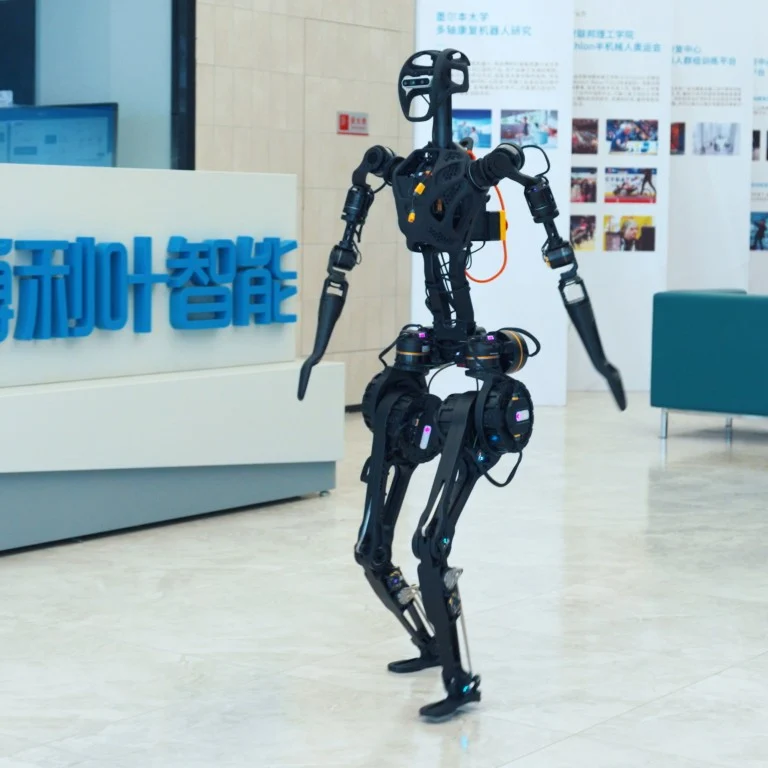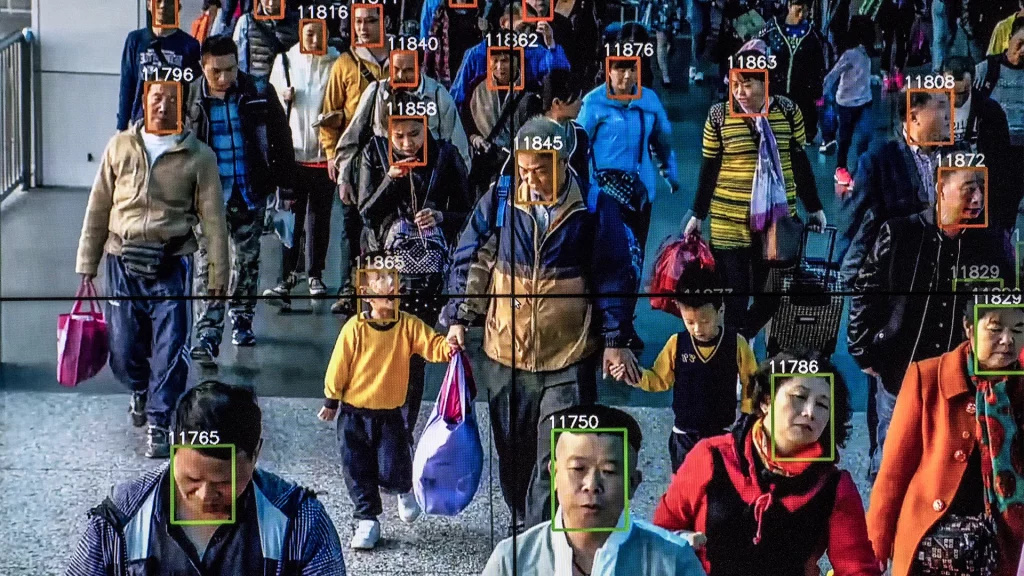The AI Development in China
Artificial Intelligence (AI) has become a pivotal force in the 21st century, drastically transforming numerous facets of life globally. Among the nations at the forefront of this AI revolution, China has emerged as a central player. This surge in prominence is the result of the Chinese government’s unwavering commitment to AI, which is evident through various policies, funding initiatives, and strategic plans such as the “New Generation Artificial Intelligence Development Plan.” Launched in 2017, this ambitious plan positions China on the path to becoming a global AI leader by 2030, encompassing comprehensive strategies for research funding, talent recruitment, and AI infrastructure development.
China’s rise in the AI domain is attributed not only to government support but also to the contribution of leading AI research institutions and companies like Baidu, Tencent, Alibaba, and SenseTime. These organizations have become magnets for global AI talent, propelling China’s rapid advancements in AI. The nation’s vast population generates a massive amount of data daily, a crucial resource for training and refining AI algorithms. Leveraging this data, Chinese companies have developed advanced AI models, excelling in areas like natural language processing, image recognition, and recommendation systems.
The implementation of AI in China spans various sectors, significantly impacting healthcare, transportation, and education. In healthcare, AI has brought advancements like early disease detection and personalized treatment plans, exemplified by companies like Ping An Healthcare using AI for early cancer diagnosis. The integration of AI in transportation is evident through companies like DiDi optimizing ride-sharing routes and Baidu’s Apollo project pioneering autonomous vehicles. In the education sector, AI-driven personalized learning platforms and tutoring systems are reshaping the educational landscape, offering customized learning experiences and enhancing administrative efficiency.
As China continues to lead in AI, it faces the critical task of navigating the ethical and governance challenges that accompany such leadership. The country’s influence in AI necessitates responsible development and collaboration on international AI ethics and standards. This blog aims to explore China’s AI development journey, its global impact, and the implications of its ascent as an AI powerhouse. We will delve into the history, advancements, challenges, and future outlook of AI in China, providing insights into how this nation is shaping the AI landscape and what it means for the world.
Historical Development and Technological Advancements in AI
China’s journey in AI, from its early stages in the late 1970s to its emergence as a global leader, showcases a blend of strategic government initiatives and robust private sector involvement. The nation’s transformation in AI reflects a combination of historical dedication and cutting-edge technological innovation.
Early Foundations and Strategic Growth
The roots of China’s AI sector can be traced back to post-economic reform efforts, where emphasis on science and technology began shaping the future landscape. The early AI research, often led by scientists educated abroad, laid a foundational groundwork for what would become a national agenda in AI. Since 2006, with the introduction of pivotal government policies and funding, China has aggressively pursued AI, setting ambitious targets for 2020, 2025, and 2030 to establish global dominance in this field.
Central Role of National AI Teams
Central to this development are national AI teams comprising leading companies like Baidu, Tencent, Alibaba, SenseTime, and iFlytek. Each of these giants spearheads specialized AI sectors, contributing to a collaborative ecosystem that includes the private sector, universities, and the military. This synergy has driven advancements across healthcare, transportation, education, and other industries. However, concerns about labor market impacts, regional disparities, and ethical issues such as data control and user privacy have emerged, prompting regulatory responses like the Data Security Law.
Recent Developments and Generative AI
Notably, recent developments in generative AI have placed China in the global spotlight. Baidu’s Ernie 4.0, a generative AI model comparable to OpenAI’s GPT-4, demonstrates China’s advancements in creating diverse content, such as writing novels and producing advertising materials. While reactions to this innovation have been mixed, it signifies a significant leap forward.
Baidu’s AI initiatives extend beyond Ernie 4.0, integrating generative AI across various products to enhance user interaction and efficiency. The company’s significant infrastructure advancements, through platforms like Plugin Matrix AI and Qianfan Foundation Model Platform, enable a broad range of applications, from smart devices to autonomous vehicles like Apollo Go. These efforts illustrate China’s comprehensive approach to embedding AI in multiple sectors.

Technological Prowess and Infrastructure Expansion
In addition to software advancements, China has made significant strides in hardware and infrastructure. The development of humanoid robotics, led by companies like Dreame Technology and Fourier Intelligence, showcase an innovative spirit in AI applications. The record-breaking industrial robot installations in 2022 further underscore China’s growing influence in robotics.

Facial recognition technology is another area where China has made global headlines, with Chinese companies topping international accuracy rankings. This technology’s widespread implementation in public spaces exemplifies China’s strength in applying AI solutions on a large scale.

In the healthcare sector, AI’s integration is revolutionizing medical services with the approval of numerous AI medical devices in specialties like cardiology and neurology. This development signifies a major leap in enhancing healthcare efficiency and precision.
AI in Transportation, Education, and Beyond
Transportation and education are other sectors witnessing a transformative impact of AI. Companies like DiDi use AI to optimize ride-sharing routes, while personalized learning platforms and tutoring systems are reshaping the educational landscape, offering customized experiences for students.

Manufacturing and Smart City Applications
The manufacturing sector in China is also experiencing a revolution with the adoption of AI-driven smart factories, leading to increased efficiency and reduced costs. In urban development, AI is crucial in smart city applications, enhancing traffic control and public services.
International Influence and Infrastructure Development
China’s influence in the AI domain extends globally, especially through the export of AI technologies and solutions. The country’s AI industry, valued at around 69 billion U.S. dollars, highlights its commitment to advancing AI infrastructure. This includes significant investments in computing power and the establishment of digital and intelligent workshops and factories.
Navigating the Future
As China continues to refine its AI capabilities, it faces the complex task of balancing innovation with ethical and governance considerations. The integration of AI across various sectors demonstrates China’s ambition to lead global AI innovation, but addressing ethical challenges and ensuring responsible AI use remain key to fully harnessing these technological advancements.
Government's Role and AI Governance
In the dynamic and rapidly evolving landscape of Artificial Intelligence (AI), the Chinese government has carved out a distinctive approach to AI governance, characterized by a pragmatic balance between fostering innovation and implementing regulation. This approach reflects China’s commitment to stability and security, while increasingly accommodating public opinion and evolving global norms.
Stability and Security Focus
China’s government underscores the crucial role of AI in maintaining societal stability. This is exemplified by the implementation of the AI-enabled social credit system, which extensively gathers data to enforce compliance. The system, despite its implications for individual privacy, aligns with the government’s overarching focus on stability. It reflects a unique blend of technology and governance aimed at managing the societal impacts of AI.
Responsive Governance and Public Opinion
Contrasting with the perception of prioritizing security over governance, China’s stance on AI regulation is nuanced and responsive. The government’s policies evolve in response to public scrutiny over AI-enabled surveillance and privacy concerns. High-profile instances, such as the public disapproval of Baidu co-founder Robin Li’s comments on privacy, highlight the growing sensitivity among Chinese citizens towards data privacy and misuse.
Regulatory Landscape
China is proactively shaping its AI regulatory environment. This includes implementing penalties and restrictions on technology firms, like Didi, for privacy violations. The regulatory framework is in a state of continuous development, introducing new laws and guidelines to address the evolving risks associated with AI technologies. This evolving landscape points to China’s commitment to regulating AI in a manner that balances security interests with innovation.
Grassroots Influence and Debates
Grassroots movements in China have increasingly influenced AI policy decisions. For example, public backlash led to the cancellation of a controversial health app in Hangzhou. Similarly, the widespread use of AI-enabled facial recognition technology has been met with public opposition, prompting regulatory responses. The Cyberspace Administration of China (CAC), for instance, now mandates companies to secure consent for using facial recognition technology, showcasing an increased commitment to public opinion and ethical governance.
Legislative Developments
China is pioneering in AI legislation, as seen with the recent law restricting the development of generative AI technology. This legislation does not signify a suppression of generative AI but rather illustrates a regulatory approach that encourages growth within ethical confines. Major tech companies continue to receive approvals for deploying AI services, indicating a regulatory environment that is cautious of risks yet supportive of innovation.
International Collaboration and the GAIGI
At the forefront of China’s international AI governance efforts is the Global AI Governance Initiative (GAIGI), introduced by President Xi Jinping. GAIGI advocates for an open and fair environment for AI development, emphasizing the need for international collaboration to address AI’s risks. The initiative calls for agile governance, enhanced explainability and predictability in AI, and the development of trustworthy AI technologies. While GAIGI has been more of a collection of proposals than concrete policies, it signals China’s commitment to shaping global AI norms, including respecting national sovereignty in AI regulations.
Despite potential conflicts, such as those arising from U.S. export controls aimed at limiting China’s AI advancements, China seeks international engagement on AI regulation. This engagement was evident in China’s participation in the AI Safety Summit in the UK and its endorsement of the Bletchley Declaration, which emphasizes human rights, transparency, fairness, and data protection in AI.
Challenges and Criticisms
As China continues its rapid advancement in Artificial Intelligence (AI), it faces a myriad of complex challenges and criticisms that cut across technological, ethical, societal, and policy spheres.
One of the most pressing concerns in China’s AI landscape is the ethical and privacy implications of AI. The country’s extensive data collection practices, essential for AI development, have sparked fears about privacy breaches and pervasive surveillance. These worries are heightened by the scale of data collection and the potential for misuse by both government and private entities.
The role of the Chinese government in AI development, while instrumental in driving progress, also raises critical issues. The state’s significant involvement in AI regulation and development has led to apprehensions about state surveillance, censorship, and the use of AI as a tool for social control. This centralization of control, although beneficial in streamlining AI initiatives, could potentially limit innovation and freedom in the AI domain.
Issues of bias and fairness in AI systems are also a significant concern in China, as in other parts of the world. There’s a risk that AI systems, particularly in facial recognition and public surveillance, could reinforce societal biases or introduce new forms of discrimination. These challenges call for careful consideration in the development and deployment of AI technologies.
Technological dependence and security are other critical challenges. Despite its strides in AI, China still relies significantly on foreign technology, especially in advanced chipsets. This dependence is seen as a strategic vulnerability in the context of global technology competition and international trade tensions.
The economic impact of AI, particularly regarding job displacement and workforce shifts, is another area of concern. As AI drives efficiency and innovation across various industries, it also poses challenges in terms of workforce retraining and the potential widening of income inequality.
The reliability and safety of AI systems, especially in critical applications, are under increasing scrutiny. There are growing concerns about whether these systems are adequately equipped to handle complex, real-world scenarios without compromising safety and effectiveness.
Furthermore, the global nature of AI development means that China’s approach to AI ethics, regulation, and collaboration has far-reaching implications. How China aligns its AI policies with global standards, particularly in data privacy and intellectual property, is a subject of international interest.
Lastly, the integration of AI into education and social life is advancing rapidly, raising questions about its impact on personal development, social skills, and privacy. As AI becomes more ingrained in daily life, its influence on societal norms and behaviors is an evolving area of discussion.
In sum, China’s path in AI development is laden with challenges that encompass a range of ethical, societal, and policy issues. Navigating these challenges effectively is essential for China to harness AI’s potential responsibly and sustainably, with implications that resonate not just within China but across the global stage.
Future Outlook
As China forges ahead in the realm of Artificial Intelligence (AI), its future in this field appears both transformative and expansive. The Chinese government’s strong support for AI, as evidenced by ambitious initiatives such as the “New Generation Artificial Intelligence Development Plan,” is central to the nation’s vision of becoming a global AI leader by 2030. This plan encapsulates substantial investments in AI research and development, alongside policies encouraging AI integration across various industries, from healthcare and education to automotive and finance. Such widespread application is expected to revolutionize these sectors, introducing new levels of efficiency and innovative business models.
Home to some of the world’s most innovative technology companies, China is already making significant contributions to AI technology. This trend is likely to accelerate, with Chinese firms and research institutions at the forefront of AI advancements. However, as AI technology advances, China, like other countries, faces challenges related to ethics, privacy, and regulation. Navigating these complexities is a key aspect of AI development, and China’s approach to these challenges, including the introduction of groundbreaking laws like the one governing generative AI, will be crucial.
The global dimension of China’s AI development is characterized by a blend of collaboration and competition. As the country vies for AI supremacy, it also seeks partnerships that foster advancements through cooperation. This international interplay may yield technological progress, yet it also brings potential tensions in areas like cybersecurity and technological supremacy.
The burgeoning demand for AI talent in China is leading to significant investments in education and workforce development. Specialized university programs, vocational training, and online courses are likely to proliferate, aligning educational efforts with the emerging needs of the AI era. Concurrently, the societal impact of AI, including job displacement and ethical considerations, will necessitate comprehensive strategies to address these implications.
China’s pioneering stance in regulating generative AI is a testament to its commitment to shaping global AI governance. This regulatory leadership balances innovation with security and ethical considerations, setting a precedent for how emerging AI technologies might be regulated worldwide.
Investments in AI infrastructure, such as computing power and data centers, are poised to sustain China’s leading position in AI research and application. The integration of AI is projected to be a major driving force in China’s industrial upgrading and economic transformation, reshaping the country’s economic landscape.
The diverse applications of AI in China extend to urban development, fintech, biomedicine, manufacturing, and scientific research. Innovations in smart city initiatives, using AI for traffic control and public services, are set to make urban living more efficient and responsive. In education, AI-driven personalized learning platforms and tutoring systems offer a more tailored and efficient learning experience for students.
China’s future in AI is marked by rapid development and strategic governance. As it strides toward becoming a global AI leader, China is defining the impact of AI on industries, societies, and international relations. Balancing innovation with ethical and societal considerations will be essential for harnessing the full potential of AI, benefiting both China and the global community.
Conclusion
As we reflect on the expansive journey of Artificial Intelligence (AI) in China, it becomes evident that the nation stands at a pivotal juncture in shaping the future of this transformative technology. Embarked on a path to become a global AI leader by 2030, China’s ascent in the AI realm is underpinned by the government’s strategic planning, significant research funding, and a concerted effort to develop robust AI infrastructure.
Chinese technology giants like Baidu, Tencent, Alibaba, and SenseTime, buoyed by the nation’s large data reservoir, have been instrumental in propelling advancements in AI. These developments span across diverse sectors, making profound impacts in healthcare, transportation, education, and more. Innovations such as early disease detection tools, intelligent transportation systems, and personalized education platforms reflect the depth and breadth of AI integration into the societal fabric.
However, this rapid evolution does not come without its challenges. Ethical concerns, data privacy issues, and international tensions loom large over China’s AI ambitions. The government’s strong influence in AI development, while driving progress, also raises critical questions about surveillance, censorship, and the freedom of information. Addressing these concerns, along with the global implications of China’s AI policies, remains a crucial task for policymakers and technologists alike.
China’s journey in AI is not just a testament to technological prowess but also a narrative of navigating complex ethical, societal, and policy landscapes. The nation’s approach to AI, balancing rapid innovation with responsible governance, will significantly influence not only its own future but also the global AI ecosystem. As China continues to stride forward in the AI domain, its trajectory will likely be characterized by groundbreaking technological advancements, continued efforts to mitigate challenges, and an enduring quest to harmonize technological growth with ethical governance.
In essence, the story of AI in China is one of extraordinary progress, complex challenges, and a relentless pursuit of global leadership. It is a journey that not only redefines the technological capabilities of a nation but also shapes the contours of global technology and politics in the AI era.

Discover the Future of Shopping with "Shopatainment – The Future of Shopping"
Our new book “Shopatainment – The Future of Shopping” explores how the innovative fusion of shopping and entertainment is revolutionizing the way we shop. Learn about the origins of this trend in China, the technologies and formats being used, and the opportunities and challenges it presents for the West.

Want to expand to the Chinese market? Contact us for a first free consultation.
